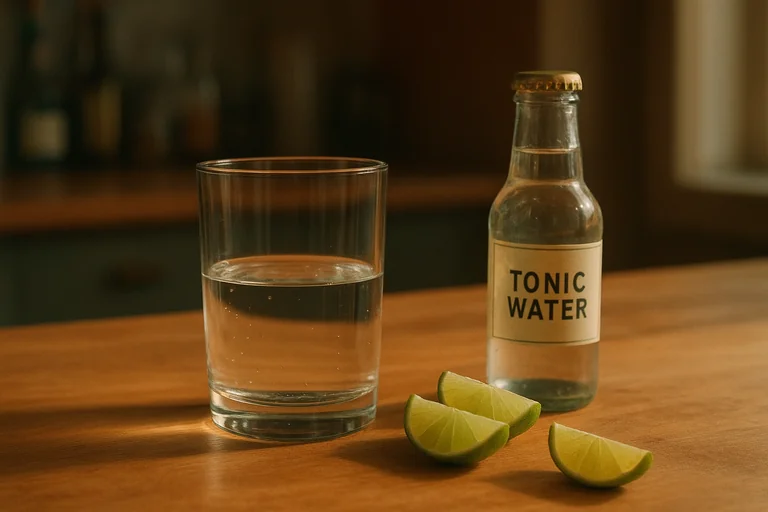A 2 minute assessment to get a personalized mental health or alcohol recovery plan.
A month-long break from alcohol can reset your health, sharpen your mind, and change how you think about drinking. Here's everything you need to know.
What You'll Discover:
- The origins of Sober October and how it became a global movement.
- Science-backed physical and mental health benefits of temporary alcohol abstinence.
- Step-by-step preparation guide for a successful sober month.
- Practical strategies for navigating social situations without alcohol.
- Week-by-week breakdown of what to expect during your journey.
- How to maintain healthy drinking habits after October ends.
October brings pumpkin spice and fall weather. For millions worldwide, it also brings Sober October. That's 31 days without alcohol that can transform your relationship with drinking.
Whether you're sober curious, want to reset your habits, or simply challenge yourself, this guide covers everything you need for a successful month of sobriety.
The Origins of Sober October
Macmillan Cancer Support launched Sober October in the UK in 2014 as a charity fundraiser. The concept was simple: abstain from alcohol for October and get sponsored, with proceeds supporting people living with cancer.
The campaign was an immediate hit. It tapped into growing interest in healthier lifestyles while making a tangible difference for cancer patients.
From Charity to Lifestyle Movement
Over the years, Sober October evolved beyond fundraising. The focus expanded to include personal health benefits. Today, millions participate globally, with many joining the "sober curious" movement. These are people rethinking their relationship with alcohol.
The Social Media Effect
Social media accelerated Sober October's growth. Instagram, TikTok, and Facebook became virtual support groups. The hashtag #SoberOctober connects participants worldwide, creating a community of shared experience.
Today, Sober October is more than charity. It's a cultural phenomenon. It's personal reflection, habit formation, and community celebration rolled into one transformative month.
The Science-Backed Benefits of a Sober Month
Taking 31 days off from alcohol is a health investment. The benefits are backed by solid scientific evidence.
Physical Transformation: Your Body Gets Healthier
When you stop drinking, your body gets a break from a substance that affects virtually every system. Here's what happens:
Improved Sleep
Alcohol disrupts sleep quality, especially in the second half of the night. Sobriety brings deeper, more restorative sleep. You'll wake up energized and refreshed.
Healthier Liver
Your liver metabolizes alcohol, and excessive drinking causes fat buildup and inflammation. A sober month reduces liver fat and improves function. It prevents more serious liver problems down the road.
Weight Loss
Alcohol is packed with empty calories and stimulates appetite. Without it, you'll naturally consume fewer calories and make healthier food choices. Weight loss often follows.
Stronger Immune System
Alcohol suppresses immunity, making you more vulnerable to illness. A month off strengthens your immune response. You'll fight off infections more effectively.
Reduced Cancer Risk
Alcohol is a known carcinogen. Even moderate drinking increases cancer risk for several types. A break from alcohol lowers your long-term risk.
Better Heart Health
Heavy drinking raises blood pressure, causes irregular heartbeat, and weakens heart muscle. Sobriety lowers blood pressure, improves heart function, and reduces heart disease risk.
Mental and Emotional Reset: A Clearer Mind
Alcohol is a depressant that significantly impacts mental and emotional well-being. Here's how a sober month transforms your mind:
Improved Mental Clarity
Alcohol clouds thinking and impairs cognition. Sobriety brings sharper memory, better focus, and clearer thinking.
Reduced Anxiety and Depression
Many people drink to relieve stress and anxiety. But alcohol actually worsens these conditions long-term. A sober month reduces anxiety and depression while improving overall mood.
Increased Emotional Stability
Alcohol causes mood swings and emotional volatility. Sobriety helps you regulate emotions better. You'll respond to challenges more calmly and balanced.
New Perspective on Your Drinking
A sober month lets you re-evaluate your relationship with alcohol. You'll identify drinking triggers, develop healthier coping mechanisms, and create a more mindful approach to drinking.
What the Research Says
A study in PMC found that even short-term alcohol abstinence significantly improves health markers. Heavy drinkers who abstained for one month showed improvements in insulin resistance, blood pressure, body mass, and cancer-related growth factors.
Another study found that "Dry January" participants reported long-term benefits six months later: less frequent drinking, lower alcohol volume, and increased confidence in resisting alcohol. Even temporary breaks lead to lasting positive changes.
Sober October is an opportunity to invest in your health, reset your relationship with alcohol, and discover the power of sobriety. This is where mindful drinking can be a powerful tool.
Preparing for a Successful Sober October
Like any great adventure, Sober October requires preparation. Here's your step-by-step guide to set yourself up for success.
Step 1: Define Your "Why"
Before you begin, reflect on your motivations. Why take a break from alcohol? What do you hope to gain?
Your goal might be better health, improved sleep, saving money, or simply challenging yourself. Having a clear "why" provides powerful motivation when you face cravings or difficult social situations.
Write down your reasons and keep them visible. This constant reminder reinforces your commitment to yourself.
Step 2: Set Clear and Realistic Expectations
Sober October is a journey, not a race. Set clear, realistic expectations.
Some people abstain completely for 31 days. Others take a flexible approach, committing to specific alcohol-free days per week. There's no right or wrong way. Choose a goal that feels both challenging and achievable.
Be prepared for challenges. You may experience cravings, feel out of place socially, or even slip up. This is normal. Be kind to yourself, learn from experiences, and get back on track quickly.
Step 3: Build Your Support System
Don't go alone. A strong support system predicts success.
Tell friends and family you're participating and ask for support. You'll be surprised how many people will cheer you on and join alcohol-free activities.
Find online support too. Facebook groups, forums, and social media communities connect you with others on the same journey. Sharing experiences, challenges, and triumphs with a supportive community is incredibly powerful.
Step 4: Plan Alcohol-Free Activities
One of the biggest challenges is navigating social situations that typically revolve around alcohol. Plan alcohol-free activities in advance:
- Host a mocktail party - Experiment with delicious non-alcoholic cocktails.
- Plan outdoor adventures - Go hiking, have a park picnic, or take a bike ride.
- Have game night - Break out board games, cards, or video games for friendly competition.
- Take a class - Learn cooking, painting, dancing, or another new skill.
- Spa night at home - Pamper yourself with a relaxing bath, face mask, and soothing music.
Planning fun alcohol-free activities proves you don't need alcohol to have a good time.
Step 5: Stock Up on Alcohol-Free Alternatives
Having delicious, satisfying alcohol-free drinks on hand makes Sober October much easier. Options are better than ever:
- Sparkling water with a twist - Add lemon, lime, or cucumber for refreshing flavor.
- Herbal tea - Wide variety of flavors, each with unique health benefits.
- Kombucha - Fermented tea with probiotics and complex, slightly vinegary flavor.
- Non-alcoholic beer and wine - Quality has improved dramatically with many delicious options.
- Non-alcoholic spirits - Growing market of spirits designed to mimic gin, whiskey, and rum for cocktails.
Proper preparation sets you up for a month of success, self-discovery, and transformation. This is your journey. Make it life-changing.
Navigating Social Situations Without Alcohol
How do you navigate social situations without alcohol? In a world where gatherings revolve around drinking, it can feel challenging. The good news: you can stay sober and still have a great time.
The Power of "No"
You have the right to say "no" to alcohol. You owe no one an explanation. A simple "no, thank you" is enough.
If you feel pressured, have go-to phrases ready:
- "I'm not drinking tonight, but I'd love a sparkling water."
- "I'm doing Sober October, and I'm feeling great!"
- "I'm the designated driver tonight."
Most people will respect your decision. Those who don't probably aren't people you want to spend time with anyway.
The Art of the Alcohol-Free Drink
Having a non-alcoholic drink in hand helps you feel comfortable and avoids unwanted questions. Order sparkling water with lime, club soda with cranberry juice, or non-alcoholic beer. Most people won't even notice you're not drinking alcohol.
At parties, bring your own non-alcoholic drinks to share. Introduce friends to delicious mocktails and show them you don't need alcohol for a good time.
Focus on Connection, Not Consumption
The true purpose of social gatherings is connecting with people, not consuming alcohol. At parties and events, consciously focus on people. Ask questions, listen to stories, engage in meaningful conversations. You'll be surprised how much more present and engaged you feel when you're not drinking.
Be the First to Leave
There's no rule saying you must be the last person at a party. If you're tired, uncomfortable, or ready to go home, give yourself permission to leave. Your well-being is more important than staying a few more hours.
Your Sober October Journey: Week-by-Week Guide
Sober October is a marathon, not a sprint. Here's your week-by-week guide to stay motivated and on track.
Week 1: The Honeymoon Phase
The first week is often the most exciting. You're motivated, energized, and proud of taking on this challenge. You may experience initial cravings, but they're likely manageable.
Focus on positive changes you're already experiencing: better sleep, more energy, clearer mind.
Week 2: The Reality Check
The second week can be more challenging. The novelty wears off, and you may feel the pull of old habits.
This is crucial time to lean on your support system and remember your "why." Revisit your reasons for participating and focus on long-term benefits.
Week 3: Finding Your Groove
By week three, you're likely finding your groove. You've developed new routines, discovered delicious alcohol-free drinks, and feel more confident navigating social situations without alcohol.
Celebrate your progress and reflect on how far you've come.
Week 4: The Home Stretch
The final week is the home stretch. You're close to the finish line, feeling a mix of excitement and pride.
Start thinking about your relationship with alcohol after Sober October. Do you want to continue abstaining completely? Do you want to drink more mindfully? There's no right or wrong answer. Choose what feels right for you.
Life After Sober October
Congratulations! You've completed 31 days of sobriety. You've navigated social situations, discovered new aspects of yourself, and proven you can change your relationship with alcohol.
But what happens now? How do you integrate these lessons into your life long-term? This is where real transformation begins.
The Art of Mindful Drinking
For many people, the goal isn't abstaining forever. The goal is developing a healthier, more mindful relationship with alcohol. Mindful drinking means being present and aware of why, when, and how much you drink. It's making conscious choices aligned with your values and well-being, not drinking on autopilot.
Key principles of mindful drinking:
Drink with intention
Before you drink, ask yourself why. Celebrating a special occasion? Unwinding after a long day? Or drinking from habit or social pressure? Understanding your motivations helps you make conscious choices.
Savor the experience
When you choose to drink, do so slowly and mindfully. Pay attention to taste, aroma, and how the drink makes you feel. Savoring the experience means you'll drink less and enjoy it more.
Set your limits
Before drinking, decide how many drinks you'll have and stick to it. This prevents drinking more than intended.
Listen to your body
Pay attention to how alcohol affects your body and mind. If you feel tired, dizzy, or emotional, it's time to stop.
Setting New Boundaries
Sober October is a great opportunity to set new boundaries around alcohol. You may have discovered you don't enjoy certain social situations that revolve around heavy drinking. Or certain friends pressure you to drink more than you'd like.
It's okay to say "no" to invitations that don't feel right. It's okay to limit time with people who don't support your well-being.
What to Do If You Slip Up
Changing your relationship with alcohol is a journey. There may be times when you slip up and drink more than intended.
If this happens, be kind to yourself. A slip-up is not failure. It's a learning opportunity. Ask yourself what led to the slip-up and what you can do differently next time. Then get back on track.
Sober October for the Long Haul: Is Sobriety Right for You?
For some people, Sober October is a gateway to long-term sobriety. They feel so much better without alcohol that they give it up for good.
If you're considering a sober lifestyle, you're not alone. A growing community is choosing sober living, with countless resources available to support your journey.
If you're concerned you may have a more serious problem with alcohol, seek professional help. Alcohol Use Disorder (AUD) is a medical condition requiring treatment. A doctor or therapist can assess your drinking habits and create a treatment plan that's right for you.
The Ripple Effect: How Your Sober October Inspires Others
Your Sober October journey isn't just about you. It's about the ripple effect your choices have on people around you.
When you take a break from alcohol, you send a powerful message to friends, family, and community. You show them it's possible to have fun, be social, and live a full, vibrant life without alcohol.
You may be surprised how many people your journey inspires. Friends may question their own drinking habits. Family may become more supportive. You may even inspire someone else to take on the Sober October challenge.
Your journey is a gift, not just to yourself, but to everyone lucky enough to be part of your life.
The Long-Term Impact: A Catalyst for Lasting Change
While Sober October is a 31-day challenge, its impact can last a lifetime. The habits you form, insights you gain, and community you build serve as a powerful catalyst for lasting change.
A New Relationship with Alcohol
For many, Sober October is a turning point in their relationship with alcohol. Taking a break lets you see your habits more clearly and make more conscious choices about alcohol's role in your life.
You may discover you don't need alcohol to have fun, relax, or connect with others. You may feel so much better without it that you decide to drink less long-term or quit altogether.
Improved Physical and Mental Health
The health benefits of a sober month aren't just temporary. Giving your body a break from alcohol reduces your risk of chronic diseases like liver disease, heart disease, and cancer. You can also improve mental health. Many report reduced anxiety and depression long after Sober October ends.
Stronger Relationships
Sober October can positively impact your relationships. When you're not drinking, you're more present and engaged with people. This leads to deeper, more meaningful connections with friends, family, and partners.
You may also find you have more time and energy to invest in relationships when you're not spending weekends recovering from hangovers.
A More Fulfilling Life
Ultimately, the long-term impact of Sober October is a more fulfilling life. When you're not held back by alcohol's negative effects, you have more time, energy, and resources to pursue passions, achieve goals, and live aligned with your values.
You may discover a new hobby, start a new business, or simply have more time with loved ones. The possibilities are endless.
Sober October is more than a challenge. It's an investment in your future. It's a chance to create a life that's healthier, happier, and more fulfilling. As you embark on your journey, remember you're not just giving up alcohol for a month. You're opening the door to a lifetime of possibilities.
Sober October and Mental Health: The Psychological Benefits
The connection between alcohol and mental health is complex and often misunderstood. While many use alcohol to self-medicate and cope with anxiety, depression, and stress, it's a depressant that actually exacerbates these conditions long-term.
Sober October provides a unique opportunity to break this cycle and experience profound psychological benefits of a sober lifestyle.
The Vicious Cycle of Alcohol and Mental Health
Alcohol and mental health problems often go hand in hand, creating a vicious cycle that's difficult to break. People struggling with mental health issues may turn to alcohol to numb pain, but this leads to negative consequences:
Increased anxiety and depression
Alcohol may provide temporary relief, but it makes these conditions worse long-term. Alcohol disrupts neurotransmitter balance in the brain, leading to increased anxiety and depression once effects wear off.
Sleep disturbances
Alcohol disrupts sleep quality. This significantly impacts mental health, as poor sleep is linked to increased risk of anxiety, depression, and other mental health problems.
Impaired judgment and decision-making
Alcohol impairs judgment and decision-making, leading to risky behaviors and poor choices that negatively impact mental health.
Social isolation
While alcohol is associated with social gatherings, it can also lead to isolation. People struggling with alcohol problems may withdraw from friends and family, worsening loneliness and depression.
The Psychological Benefits of a Sober Month
Sober October provides a powerful opportunity to break the vicious cycle and experience profound psychological benefits:
Reduced anxiety and depression
When you stop drinking, your brain rebalances its neurotransmitters, leading to significant reduction in anxiety and depression.
Improved mood and emotional stability
As brain chemistry regulates, your mood becomes more stable. You'll cope better with stress and regulate emotions more effectively.
Increased self-esteem and self-confidence
Successfully completing Sober October hugely boosts self-esteem and self-confidence. It shows you're capable of achieving goals and have the strength and resilience to overcome challenges.
Greater sense of clarity and purpose
Without alcohol's mental fog, you may find greater clarity and purpose. You'll better identify your values, set meaningful goals, and live aligned with your true self.
When to Seek Professional Help
If you're struggling with a mental health condition, seek professional help. A therapist or counselor can help you develop healthy coping mechanisms, address underlying issues contributing to mental health problems, and create a treatment plan that's right for you.
Sober October can be a great first step toward better mental health, but it's not a substitute for professional treatment.
Your mental health is just as important as your physical health. By taking a break from alcohol and seeking professional help when needed, you can take control of your mental health and create a life full of joy, purpose, and meaning.
Your New Beginning
Sober October is more than a month of sobriety. It's a new beginning. It's a chance to reset your relationship with alcohol, reconnect with yourself, and discover the incredible power of a sober lifestyle.
The lessons you've learned, challenges you've overcome, and person you've become during this transformative month will stay with you long after October ends.
Whether you reintroduce alcohol more mindfully or continue on a sober path, you have the power to create a life aligned with your values and well-being. The journey is yours, and the possibilities are endless.
Your new horizon is waiting.
References
- Healthline: "Sober October: What a Month of No Drinking Can Do for Your Health"
- PMC: "Benefits of temporary alcohol restriction: a feasibility randomized trial"




